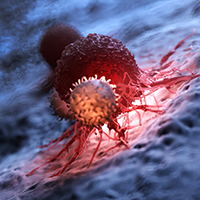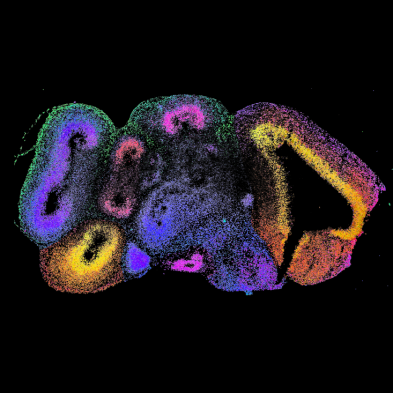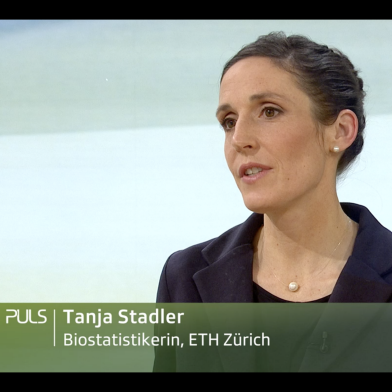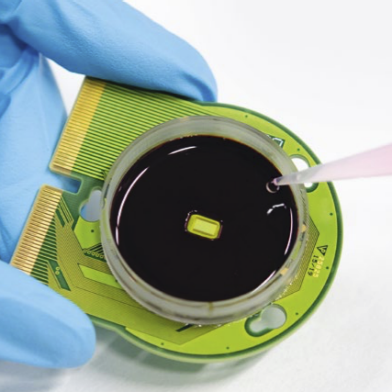01
Microelectrode-arrays help to distinguish between healthy and diseased neurons

Recent advances in cellular reprogramming have opened a route to studying the fundamental mechanisms underlying common neurological disorders. Advances in the development of so-called high-density microelectrode-arrays provide an unprecedented means to study neuronal physiology at different scales. Researchers from the Bio Engineering Lab, led by Andreas Hierlemann, now used these devices to characterise healthy and diseased (stem-cell-derived) human neurons.
Boosting the potential of engineered metalloenzymes

Replacing mineral oil-based chemistry with bio-engineered alternatives plays a key role in the establishment of a sustainable economy. A promising research area in synthetic biology are artificial enzymes containing metal ions, so-called metalloenzymes. An NCCR-funded research alliance between the Bioprocess Lab (Sven Panke) and the University of Basel (Thomas R. Ward) paves the way to systematically engineer such artificial metalloenzymes to tap their full potential for bioproduction.
Detailed tumour profiling

As part of a clinical study involving patients from the University Hospitals in Zurich and Basel, researchers are conducting a thorough and highly precise investigation into the molecular and functional properties of tumours. Their goal is to help physicians to better determine which treatment will best match every patient’s cancer and thus be most effective.
Human Organoid Cell Atlas project kicked off

Organoids are three-dimensional structures derived from stem cell cultures which provide tractable in vitro models of human physiology and pathology and as such, hold tremendous potential for biomedical applications. Coordinated by Barbara Treutlein and colleagues, researchers worldwide are now uniting efforts to compile the state-of-knowledge on human organoids with single-cell technologies, and link the data to the tissue profiles in the Human Cell Atlas (HCA).
Tanja Stadler on the new coronavirus variant and preventive measures

As of 18 January, the Swiss Federal Council has tightened the measures in order to effectively combat infections with the coronavirus, and in particular, with the new, more aggressive variants. In Switzerland, in calendar week 2, 2-6 % of confirmed cases were caused by one of the new coronavirus variants. At the SRF programme “Puls”, Tanja Stadler explains the 10-day delay in numbers of confirmed cases and that detecting the new variant requires additional sequencing and takes 1 to 2 additional days.
ETH Globe magazine featuring advances in microelectronics

The ETH Globe magazine is highlighting Andreas Hierlemann's research in the field of microelectronics and in particular, recent technological advances in developing microelectrode-array chips. A novel generation of chips resulting from a collaboration with D-BSSE spinoff MaxWell Biosystems enables comprehensive recordings of significantly more electrodes than earlier systems.
Meet Minkyoung Lee and her fascination for spatial transcriptomics

Being a developmental biologist from South Korea, the postdoctoral researcher in the lab of Andreas Moor aims to develop de novo methods to analyze how the spatial position of RNAs is related to its function in homeostasis and pathophysiology, e.g. cancer. Despite starting during Covid-19 times she already established links with several D-BSSE labs and other expert groups in and around Basel.
INVITATION: D-BSSE meets Industry on Flagship Pioneering

On 20 January, 5 PM, D-BSSE meets Industry is organising its next (virtual) event on Flagship Pioneering, a Boston-based enterprise focused on the creation of breakthroughs in human health and sustainability. The enterprise has created companies such as Cellarity and Moderna. ETH-alumna Charlotte Nicod will present her own career path and the innovation- and enterprise-building at Flagship. Registration required!
“We very much hope that the exams can go ahead as planned”

Ulrich Weidmann, head of the ETH Coronavirus task force, provides an update on the situation at the university at the start of the year and explains how the Executive Board is dealing with it.
SARS-CoV-2 variants detected in wastewater samples

Using genomic analysis in samples taken from wastewater treatment plants in Switzerland revealed the presence of the novel SARS-CoV-2 variants two weeks before its first verification in a patient sample. The study which was published on the pre-print server medRxiv was co-led by Niko Beerenwinkel together with colleagues from ETH Lausanne and Eawag. They conclude that this method may help detect and monitor the circulation of new SARS-CoV-2 variants in the human population.